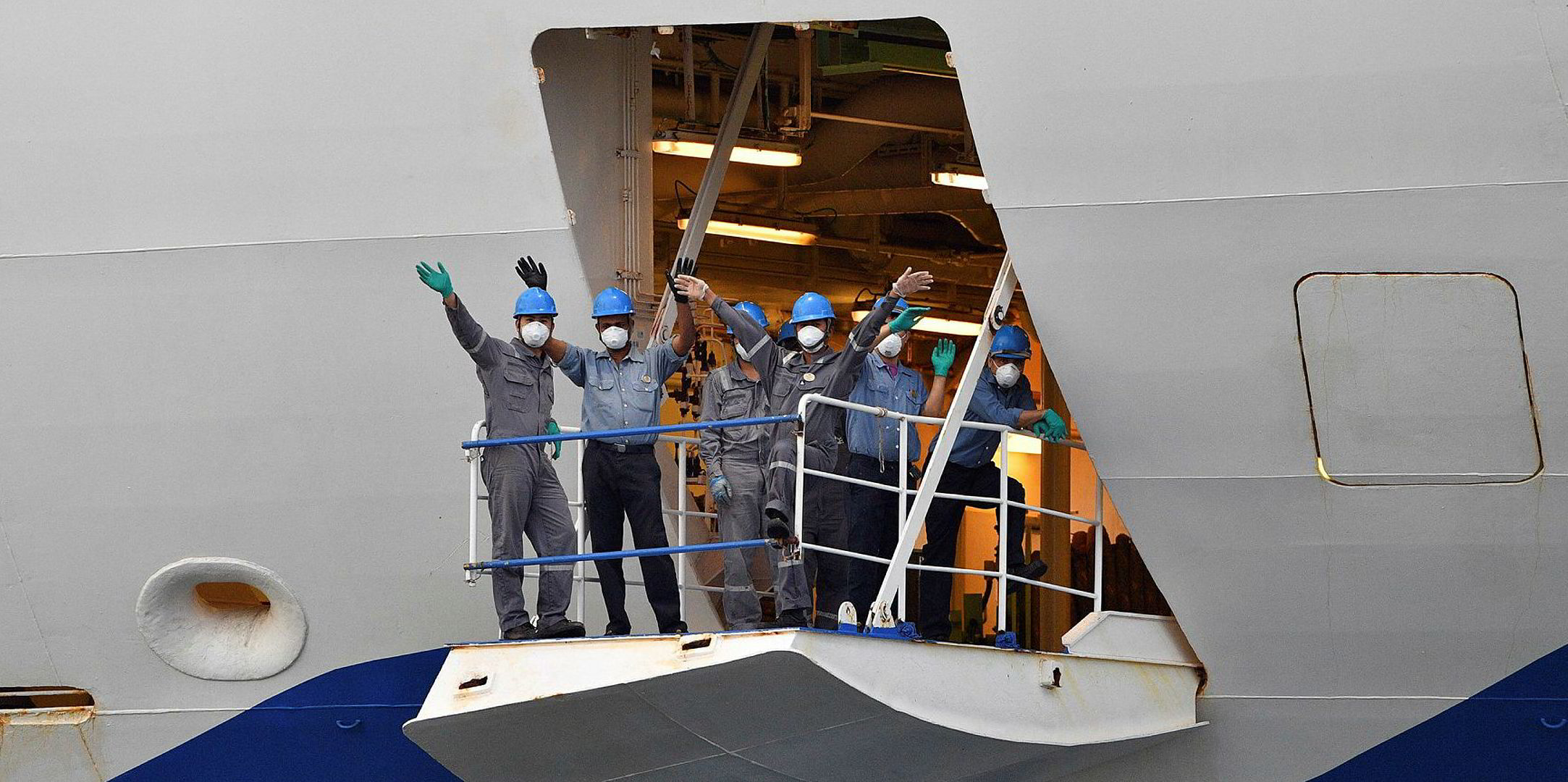New plans by a major Greek-owned bulker operator to exit the Oslo Bors has sent a shiver through the Norwegian exchange.
The biggest factor around Star Bulk Carriers' decision — which must still be formally ratified at an annual general meeting on 12 May — is surely the miserable state of the dry freight markets?
The company needs to cut costs but has also concluded it is getting limited benefit from Oslo, compared with its primary listing on the Nasdaq in New York.
Bold ambitions
The Petros Pappas-led shipping business arrived in Norway less than two years ago with high hopes of attracting new investors.
However, share trading volumes have been low and behind the scenes there is grumbling about the amount of regulation — not least around the buying back and selling of shares.
My colleague Joe Brady in New York dug up other gripes — not least the differences between Nasdaq and Oslo on disclosures, for example.
The Oslo Bors defends itself by saying it abides by European rules, which are largely in place to protect the interests of shareholders.
It is easier to gain access to the Nordic exchange but harder to satisfy the regulatory requirements once you are there, critics claim.
It is easy for wider business sentiment to be knocked when the local Norwegian oil-fuelled economy has seen recent crude prices drop to zero
And in these difficult times, it easily reactivates criticisms banded around in the past. Detractors complain the Oslo Bors is too small and is a parochial, “mates club,” for those in the Nordic know, rather than a sophisticated international exchange.
Supporters praise its highly sophisticated ship investment community, which understands the cyclicality of the industry better than anyone.
The shipping banks are in Oslo and the maritime-focused analysts are there. Surely in these turbulent times, you want this critical mass of shipping experience?
And the recent move by product tanker giant Hafnia from Oslo’s over-the-counter (OTC) exchange to a full listing should be a suitable riposte to the Oslo detractors.
Questions raised
But the fact that one of the world’s largest owners of bulkers could raise only $230m — not the $345m it was originally aiming for — also raised questions about investor appetite.
It is easy for wider business sentiment to be knocked when the local Norwegian oil-fuelled economy has seen recent crude prices drop to zero.
The Oslo Bors Benchmark Index fell by 24% in the first three months of this year, which is its biggest slump ever in a first quarter.
One potential game changer in all this is the fact that Oslo Bors is itself now in the ownership of a larger new and internationised foreign investor
It is now down 19% since 1 January, even as Brent crude is down 60%.
The Oslo Bors is heavily dependent on oil, shipping and fish-farming stocks, which are all key sectors of the local Norwegian economy.
But its worth remembering that shipping companies raised $1bn in Oslo last year from all four exchanges — OTC, Merkur and Axess as well as the main platform.
This volume, verified by Clarksons, puts it behind New York in the global league of go-to locations for maritime money.
Oslo remains a favoured place for shipowners to put a first foot into the public capital markets.
But in terms of shipping tonnage, the Norwegian exchange trails behind New York, Tokyo and Shanghai.
Game changer
One potential game changer is that the Oslo Bors is itself now in the ownership of a larger new and internationalised foreign investor, Amsterdam-based Euronext.
Oivind Amundsen, a former head of listing for Norway at Euronext, is the new chief executive.
And later this year, Oslo will be connecting with Euronext’s Optiq platform, which claims to have access to the largest pool of liquidity in Europe.
Geir Harald Aase, a spokesman for the Oslo Bors, pointed out that several dual-listed companies have “excellent” liquidity already — not least crude tanker giant Frontline.
One needs to be “careful to generalise from Star Bulk specifics”, he added, saying there are a number of parameters that drive the liquidity of a share on an exchange.
“For dual-listed companies, you need a certain base of your shareholders with shares registered in both markets,” he added.
With coronavirus, crashing commodity prices and a storage tanker freight rate boom, the Oslo Bors is in the eye of a storm — but do not worry, this place has seen it all before.







